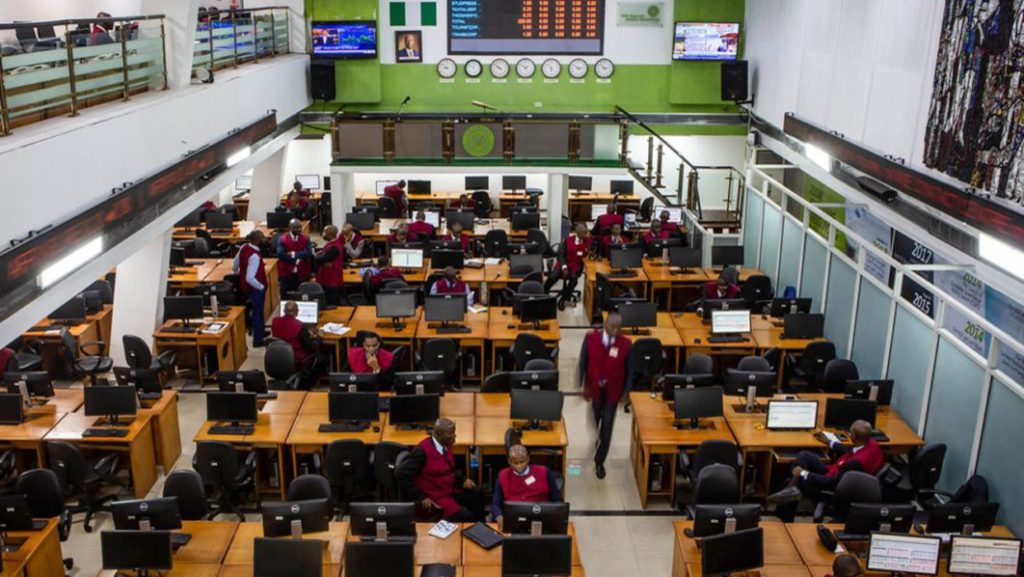The Nigerian equity market experienced a volatile week, culminating in a modest recovery on Thursday, breaking a three-day losing streak. This positive turn was fueled by increased trading activity, with volume surging by 9%, turnover jumping by a remarkable 113%, and the number of deals rising by 2% compared to the previous day. This resulted in a N54 billion gain, pushing the market capitalization to N62.3 trillion. Despite this upswing, the market’s overall performance remained subdued. The All-Share Index (ASI) edged up by a mere 0.09% to close at 102,183.06 points. This slight gain was insufficient to offset the accumulated losses earlier in the week, resulting in a weekly decline of 3.17%. However, the market maintained a positive trajectory over the four-week period, showing a 2.26% increase, although the year-to-date performance remained negative at -0.72%.
The week commenced with a N51 billion loss in market capitalization on Monday, followed by a more significant downturn on Tuesday, with the market shedding N1.06 trillion. The negative trend persisted on Wednesday, marking the third consecutive loss, as the market plummeted by another N930.62 billion. This string of losses underscores the inherent volatility of the Nigerian stock market and highlights the challenges investors face in navigating the prevailing economic uncertainties. The Thursday recovery, while welcome, provided only a small reprieve and did not erase the overall weekly decline.
Thursday’s trading session saw a significant volume of transactions, with 467.16 million shares worth N14.75 billion exchanged in 12,336 deals. Guaranty Trust Holding dominated the activity chart, trading 65.1 million shares. Other actively traded stocks included Universal Insurance Company (48.5 million shares), Fidelity Bank (45.9 million shares), and Access Holdings (27.3 million shares). This high volume suggests renewed investor confidence and points towards a possibility of sustained market recovery in the coming days. However, the market’s overall performance remains precarious, subject to both internal and external factors that can influence investor sentiment.
The market witnessed a mix of gains and losses among individual stocks. Northern Nigeria Flour Mills led the gainers, appreciating by 10% to close at N54.45 per share, followed by Dangote Sugar Refinery with a 9.91% increase, closing at N40.50 per share. John Holt and The Initiates also posted significant gains, both rising by 9.8% to close at N9.30 and N2.80 per share, respectively. These gains suggest sector-specific positive developments or renewed investor interest in these particular companies. On the other hand, Livestock Feeds experienced the largest decline, dropping by 10% to close at N5.40 per share. Eunisell Interlinked, Neimeth International Pharma, and Regency Alliance Insurance also suffered significant losses, shedding 9.97%, 9.83%, and 9.33%, respectively. This mixed performance further underscores the volatility within the market and the need for careful stock selection based on thorough analysis.
Analyzing the sectoral performance, the Top 30 Index, which represents the market’s largest and most liquid stocks, rose by 0.41% on Thursday, but recorded a weekly loss of 3.24% and a year-to-date loss of 0.73%. The Industrial Index registered the highest daily gain of 1.39%, yet remained down by 8.19% for the week and 8.15% year-to-date. This indicates that while some sectors experienced a short-term rebound, the overall trend remains bearish. Other indices, such as the Banking Index, showed a marginal gain of 0.22%, bringing its year-to-date gain to 3.07%. The Pension Index, however, shed 0.12% but maintained a year-to-date growth of 1.82%. This divergence in performance across different sectors highlights the importance of diversification for investors seeking to mitigate risk and optimize returns.
In conclusion, the Nigerian equity market’s performance during the week showcased a complex interplay of gains and losses, with a late-week recovery offering a glimmer of hope. While Thursday’s increased trading activity and the subsequent gain in market capitalization were positive signs, they were insufficient to offset the preceding losses. The market’s overall weekly performance remained negative, reflecting the lingering impact of economic uncertainties and investor apprehension. The mixed performance across different sectors underscores the need for a discerning investment approach, with careful consideration of individual stock performance and sector-specific trends. While the market’s long-term potential remains promising, investors must navigate the current volatility with caution, employing sound investment strategies to mitigate risk and capitalize on potential opportunities. The coming weeks will be crucial in determining whether the market can build on Thursday’s recovery and establish a more sustained upward trajectory.


